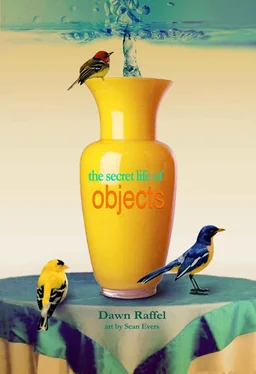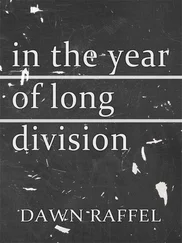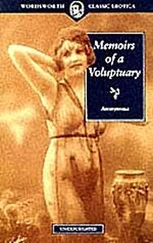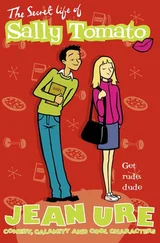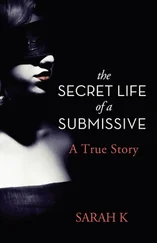Yosemite And The Range Of Light
Where the poster came from I don’t know. It’s a framed Ansel Adams print, an image you might find in any dorm room. Because we moved into our house the same week Brendan was born (our closing was delayed by a month and the baby came early), the household was haphazard. Boxes sat unopened, rooms went unpainted, and items of uncertain origin appeared on walls and shelves. The poster hung in the sitting room outside our bedroom where I used to nurse the babies in a second-hand chair in the middle of the night. I was unwilling to use the popular Ferber method, in which you let the baby cry for set increments of time until he learns to sleep through the night. Self-comfort was the concept. I couldn’t wait it out, couldn’t comfort myself while the baby was crying. And so I was up at two and four and six a.m. and off to work in the morning, bleary-eyed, hormonal, night and day. Sometimes I sat with the lights off but more often they were on, set dim, and I was looking at that picture, made impressionistic by myopia and extreme astigmatism. With every waking and would-be sleeping moment spoken for, and with my body (though no longer harboring a fetal secret sharer) not my own, that poster opened up a cold bright world of possibility. I sang in the night to my sons in that chair. I dreamed while awake, began a novel in my head. That was a world — a universe, not just a room — of my own where, as my sons took what they needed from my body — their weight in my arms, their heat on my chest — I made all the rules.
Now I sleep through the night. The novel, committed to paper, then printed and bound, stitched up, became a fact, never again to have the potency it had when it resided in my head. It is finite now, its possibilities contained. Brendan is bigger than I am, and Sean will soon be too. But I can still feel in me that great range of light — the call of the world, the child’s insistent suckle.
I became intrigued with angels when I was assigned to write an article about them in 1990. A spate of angel books was published that year, as the quick trip du jour to salvation. I ended up probing the subject more deeply than my editors required or desired, starting with the Bible, on through the Middle Ages and into the Twentieth Century, and was surprised to learn how many people, secretly or otherwise, believed. (My husband felt the difference between Protestantism and Catholicism was encapsulated by a juxtaposition of quotes in which a minister pronounced angels a beautiful metaphor and a priest proclaimed them real.) I spoke with self-styled “angelologists” who sounded as if something were fluttering in their heads, and with thinkers who could not be taken lightly. The article, when it was published, had one of the highest readerships of anything in the magazine that year.
Three years later when Brendan was born, my mother-in-law bought an angel plate to hang over his crib in what struck us all as a perfect interfaith emblem of faith.

I didn’t think much more about angels until, shortly after my father’s death in December 2000, on a day when the wind caused the windows in the office where I worked to rattle menacingly, I bought one made of glass. It broke. I still have the pieces.
When I found out that my friend T had taught at a study-abroad writer’s workshop in St. Petersburg, Russia — a city I had wanted to visit ever since I read War and Peace for the first time at 13—I asked her for the name of the person running the program and threw myself at his feet. In the summer of 2007 I got my chance to teach short story writing to American and Canadian students in that fiercely gorgeous city, named and unnamed and renamed for a Tsar — and for the keeper of heaven.
I spoke enough Russian to think I could find my way around alone. The first time I left my hotel, though, I got utterly lost. (One man gave me directions into what turned out to be a dark, gated enclosure, causing me to wonder whether this was where I would die. It turned out to be nothing more insidious than the entrance to the wrong hotel.) As it happened, I had repeatedly walked past the correct hotel because, in my jetlagged state, I hadn’t registered that it bore no sign in any language that said “hotel,” only one that said, inexplicably (in English), “Pepsi.” Nevertheless, the only time I was in real danger was when I made the not-very-smart decision to cut through an alley (and over the bridge with the golden griffins) to the nearest fake Starbucks at seven a.m., an hour at which, during the White Nights, most people are asleep and the streets are deserted. As if out of nowhere, a group of belligerent looking young women blocked me in the alleyway, and appeared ready, I feared, to pummel me, or worse. I was just about to throw my coffee at them and run, when one of them asked, in Russian, whether I was French. Stunned, I answered in English that I was American. At that, they let me go. (I have no idea what they had against the French; I’d have thought it would be far more perilous to be American. For some reason, perhaps because I was walking around in a raincoat I had bought in Paris, the Russians repeatedly mistook me for French — something no actual French person has ever done.)
On returning home I sent an email to a young woman with whom I had worked at a magazine in Manhattan and who was by then living in Burundi:
One of our guides told us we were literally standing on bones, as so many serfs died building this city that sprang from Peter the Great’s imagination. History seems to seep out of the pores of its grand buildings. We were made to feel the ghosts of those disappeared to the gulag and of the millions who starved to death during the siege of Leningrad (it was said that anyone with color in his cheeks was known to have been eating human flesh, the sole remaining source of protein). Today you see almost Soviet-style grocery stores — cheap, crummy produce; cramped, dirty aisles — just blocks from designer clothing emporiums with prices double what you’d find in New York. New restaurants and fake Starbucks (familiar round logo; a name that is a transliteration of “coffee house”) are everywhere, but you can count on them being out of half of what’s on the menu, or out of cups, or out of coffee…and it takes forever to get anything, if, in fact, what you ordered ever arrives. On a daily basis, the bus does not come, the laundry is closed because the laundry lady is at the dacha, and there is no hot water. But how can you not love a city with 24-hour bookstores (ask any Russian and he or she can recite Mayakovsky and Dostoevsky by heart) and where the light is spectacular for 20 hours of the day. On the summer solstice people dance wildly along the riverbanks and cram onto boats, clogging the Neva, blasting American techno pop and drinking quarts of vodka…”
One morning I walked into the Kazanskaya Cathedral, where the great General Kutuzov, hero of the Napoleanic war, is buried. During the Soviet years it became a museum of the history of religion, or, as many Russians referred to it, a history of atheism. Now it is again a magnificent church. (One Russian woman told us that restoring the city’s imperial place names “keeps us from feeling total despair.”)
I bought the angel there in the cathedral. It is the size, perhaps, of a strawberry from an American grocery store. I keep it in my purse.
The Plate I Thought I’d Lost That My Mother Had All Along
Читать дальше
